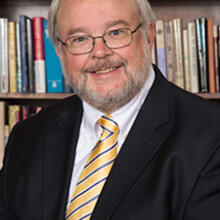This column is about broken precedents.
Presidents don’t do panels. This president doesn’t talk about “poverty.” Coverage of Catholic and evangelical public policy collaboration focuses on abortion and marriage. Columnists don’t write about events they help organize. And news is what happened an hour ago or a day ago, not a month ago.
Nevertheless, this column is about President Obama participating in a panel on poverty a month ago at a unique Catholic-Evangelical summit seeking to make overcoming poverty a clear moral imperative and urgent national priority. President Obama came to Georgetown not to give a speech, but to have a civil conversation with Robert Putnam of Harvard and Arthur Brooks, president of the conservative American Enterprise Institute, moderated by E. J. Dionne of Georgetown and The Washington Post.
They discussed how to move from political neglect and policy stalemate to dialogue and common action to increase opportunity. The president said it...
may be possible not only to refocus attention on the issue of poverty, but also maybe to bridge some of the…ideological divides that have prevented us from making progress.
There are those on the conservative spectrum who…deeply care about the poor; exhibit that through their churches, through community groups, through philanthropic efforts, but are suspicious of what government can do. And then there are those on the left who…see how important parenting…and…family structures are…but also believe that government and resources can make a difference… If coming out of this conversation we can have a both/and conversation rather than either/or conversation, then we’ll be making some progress.
For just a few days, Washington’s obsession with the “middle class” and silence about those at the bottom was broken.
One summit goal was to help Catholics and evangelicals work together to make overcoming poverty a moral imperative and national priority and to become, in Pope Francis’ words, a church “of the poor and for the poor.” At the June meeting of the U.S. Conference of Catholic Bishops, several bishops challenged some conference plans because overcoming poverty was not an explicit priority for advocacy and action. Catholic bishops also met with African-American evangelical leaders to discuss how poverty and family life are mutually supportive or destructive.
A second goal was to help conservative and Republican leaders move from new rhetoric on poverty and opportunity to new policies and priorities. Senator Tim Scott’s participation and a letter from Chairman Paul Ryan of the House Budget Committee were signs of progress, but Congressional action and the presidential campaign will test whether new conversation leads to new policies and investment. Cuts in the safety net are not a way to lift up the poor. Summit leaders, through the Circle of Protection, are asking all presidential candidates for a video outlining their specific plans to overcome poverty.
The summit has already advanced a third goal, to encourage President Obama to make poverty a priority for the next two years and for his future leadership. Democrats are talking about inequality, but it is not clear whether these are populist talking points or signs of a real commitment to make overcoming poverty a central national priority.
President Obama offered some “self-interested” comments about perceptions in political circles that churches will “go to the mat” on “defining issues” like abortion but not poverty. These comments minimize religious commitment to serve and advocate for those in poverty. But, as the bishops’ priorities debate suggests, there may be a lack of connection between service and advocacy priorities. Frankly, the administration and much of Washington share this culture war mindset, going to the mat to advance reproductive and gay rights even when this could threaten help for faith-based ministries serving the poor.
There was broad agreement at the summit—from Opus Dei ministries to Nuns on the Bus, from Focus on the Family to Sojourners—that Pope Francis’ visit to the United States in September could be and should be a turning point. As Francis meets with the president, Congress, Catholic and interfaith leaders and poor people themselves, he will have his own papal poverty summit. The pope will challenge our leaders and the rest of us to confront the scandal of too much poverty and not enough opportunity in a nation pledged to “liberty and justice for all.”








